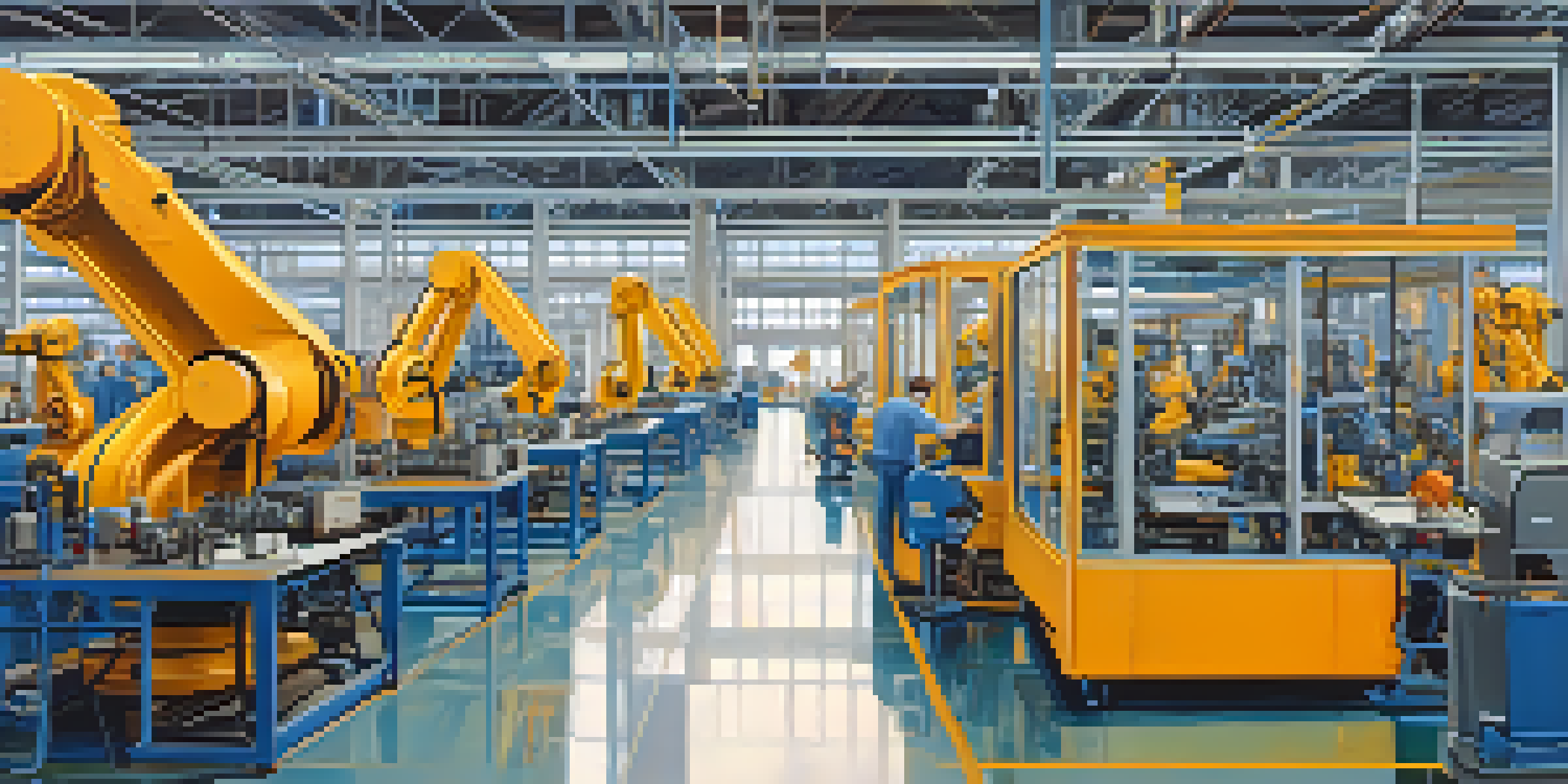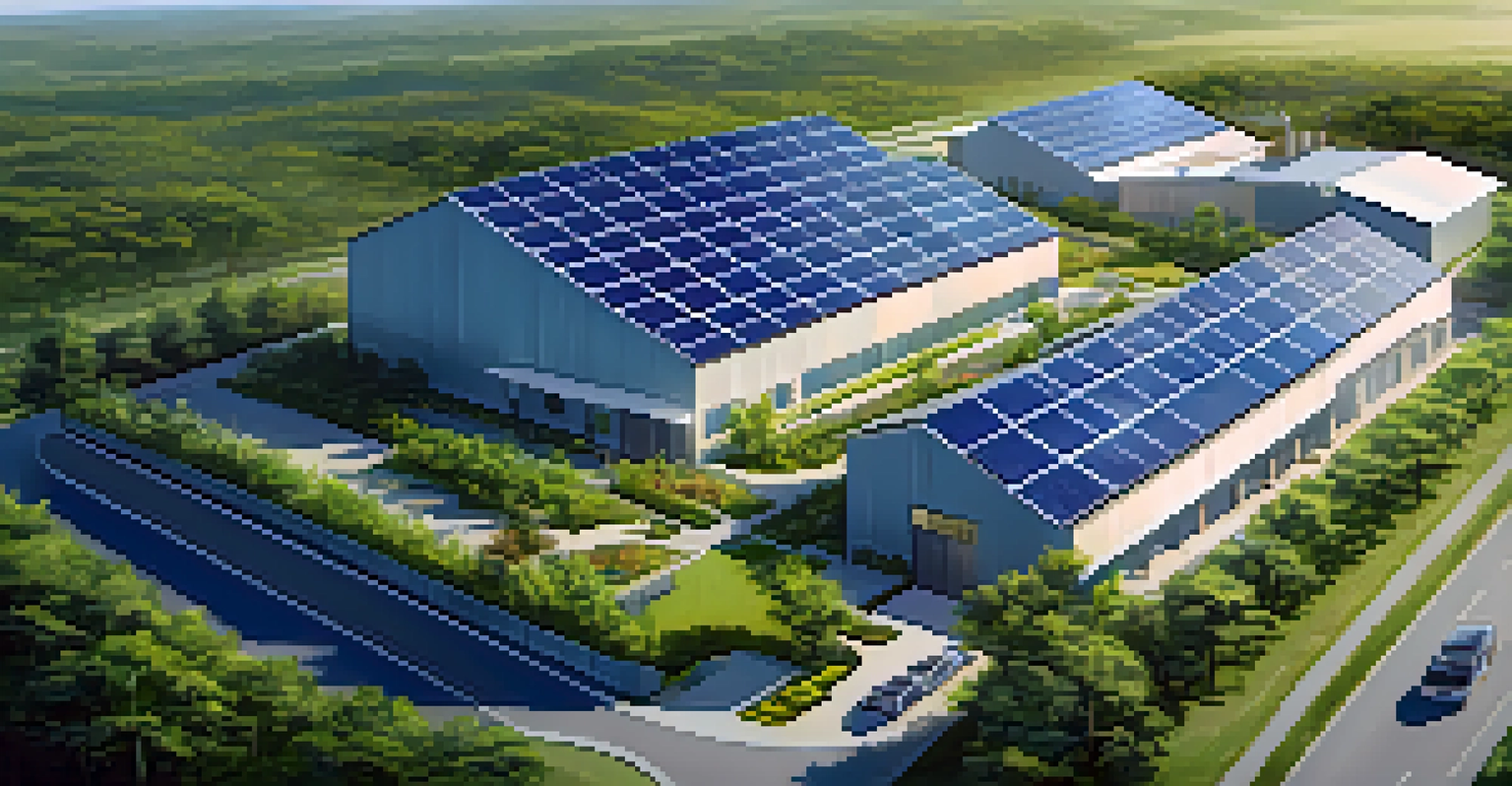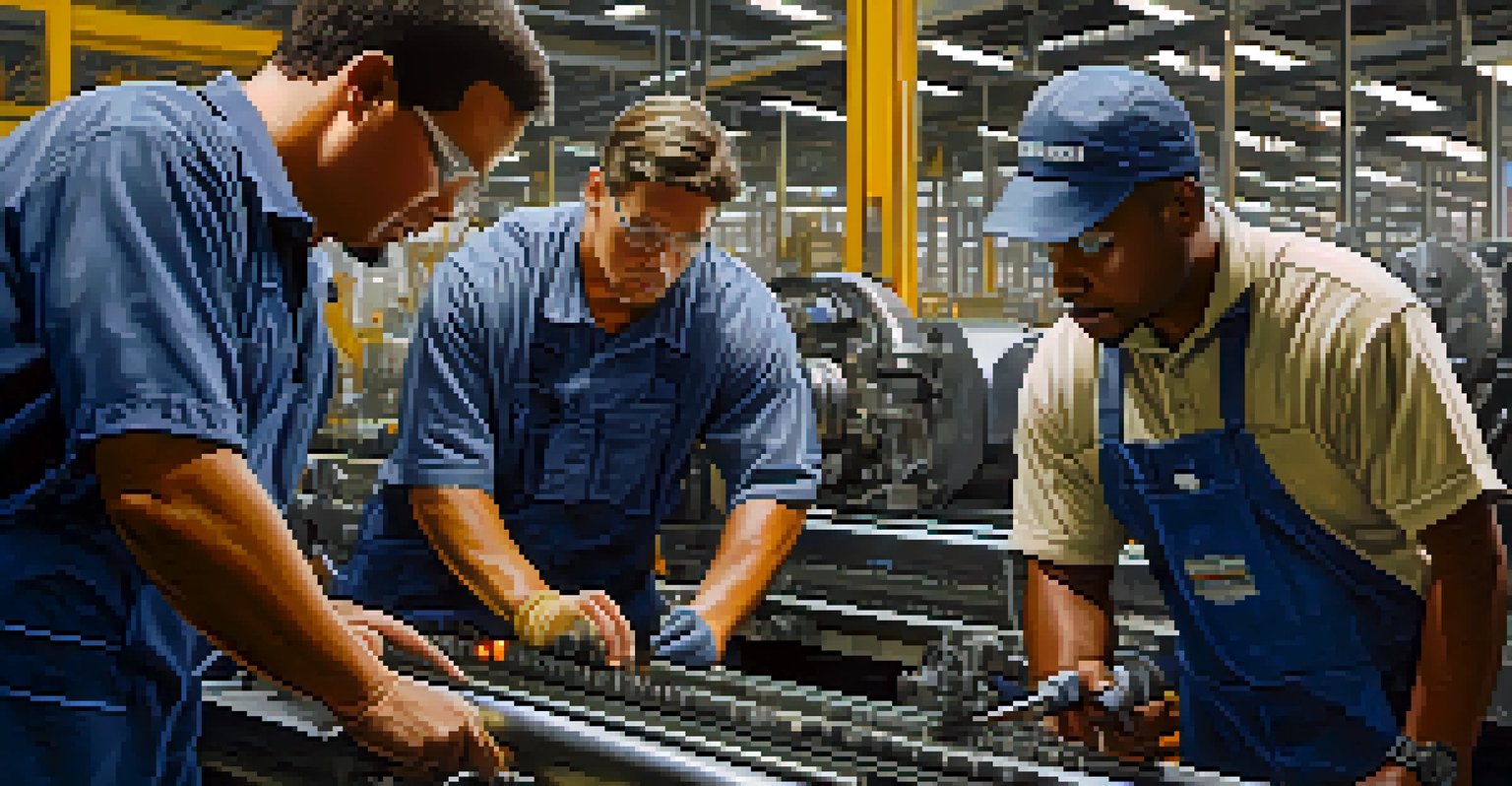The Future of Manufacturing in North Carolina's Economy

Overview of North Carolina's Manufacturing Sector
North Carolina has long been a hub for manufacturing, with a rich history that dates back to the textile boom. Today, it stands as a vital player in various industries, including aerospace, biotechnology, and automotive. This diverse manufacturing landscape not only provides jobs but also supports local economies across the state.
Manufacturing is a critical part of our economy, and it’s essential for us to invest in innovation and sustainability to thrive in a competitive global market.
The state's strategic location, coupled with its skilled workforce, makes it an attractive destination for companies looking to optimize their supply chains. As industries evolve, North Carolina is adapting to new technologies and trends that promise to shape its manufacturing future. This adaptability is crucial for maintaining its competitive edge in the global market.
With initiatives aimed at innovation and sustainability, North Carolina's manufacturing sector is poised for significant growth. Companies are now focusing on smart manufacturing practices, which integrate advanced technologies and data analytics to improve efficiency and reduce waste.
Technological Advancements in Manufacturing
As we step into the future, technological advancements are at the forefront of manufacturing evolution. Automation, robotics, and artificial intelligence are transforming traditional manufacturing processes, making them more efficient and less labor-intensive. For example, a robot can now perform tasks that once required multiple workers, significantly increasing productivity.

Moreover, the Internet of Things (IoT) is allowing manufacturers to connect machinery and gather real-time data, enabling better decision-making and predictive maintenance. This not only helps in reducing downtime but also enhances overall operational efficiency. Picture a factory where machines communicate with each other to optimize production schedules—this is becoming a reality.
Tech Innovations Transforming Manufacturing
Advanced technologies like automation and IoT are revolutionizing production processes in North Carolina, enhancing efficiency and decision-making.
However, with these advancements comes the need for a workforce skilled in new technologies. North Carolina is stepping up by investing in education and training programs to equip workers with the necessary skills to thrive in this evolving landscape.
The Role of Sustainability in Manufacturing
Sustainability is no longer just a buzzword; it's becoming a fundamental aspect of manufacturing in North Carolina. Companies are increasingly recognizing the importance of reducing their environmental impact, which is not only beneficial for the planet but also for their bottom line. For instance, using renewable energy sources can significantly lower operational costs.
The future of manufacturing in North Carolina depends on our ability to adapt to new technologies and foster a skilled workforce.
Initiatives like recycling programs and waste reduction strategies are becoming standard practices in many manufacturing facilities. By implementing these measures, businesses can improve their reputation while also attracting eco-conscious consumers. Think of it as a win-win situation: better for the earth and better for business.
Furthermore, North Carolina's commitment to sustainability is evident in its policies and incentives aimed at promoting green manufacturing practices. This shift not only enhances the state's appeal to manufacturers but also encourages innovation in sustainable product development.
The Impact of Global Supply Chains
Global supply chains have a significant effect on North Carolina's manufacturing landscape. The interconnectedness of economies means that local manufacturers must be agile and adaptable to shifts in global demand and supply. For example, disruptions like the COVID-19 pandemic have highlighted vulnerabilities in supply chains, prompting companies to rethink their strategies.
North Carolina manufacturers are now focusing on diversifying their supply sources and investing in local suppliers to mitigate risks. This shift towards local sourcing not only strengthens the economy but also supports regional businesses, creating a more resilient manufacturing ecosystem.
Sustainability Drives Industry Practices
Manufacturers in North Carolina are increasingly adopting sustainable practices, recognizing that eco-friendly approaches benefit both the environment and their profits.
Moreover, this emphasis on local supply chains is also spurring innovation and collaboration among manufacturers. By working together, companies can share best practices and resources, ultimately enhancing their competitive position in the market.
The Workforce of the Future
As the manufacturing landscape evolves, so does the workforce. There's a growing demand for skilled labor capable of operating sophisticated machinery and embracing new technologies. North Carolina is responding by enhancing vocational training programs and partnerships with local community colleges to prepare the next generation of workers.
In addition to technical skills, soft skills such as problem-solving and adaptability are becoming equally important. Manufacturers are looking for employees who can think critically and adjust to changing circumstances, which is essential in today’s fast-paced environment. Picture the difference between a factory worker who simply follows instructions and one who can innovate and improve processes.
Furthermore, promoting diversity in the workforce can lead to more creative solutions and ideas. Encouraging underrepresented groups to enter the manufacturing field not only supports social equity but also drives innovation, making North Carolina's manufacturing sector stronger and more vibrant.
Government Initiatives Supporting Manufacturing
The government plays a vital role in shaping the future of manufacturing in North Carolina. Various initiatives designed to support the sector include tax incentives, grants, and funding for research and development. These programs help manufacturers invest in new technologies and expand their operations, which ultimately stimulates economic growth.
Additionally, state and local governments are collaborating with industry leaders to create policies that promote innovation and sustainability. By establishing manufacturing hubs and innovation centers, they are fostering an environment where businesses can thrive and collaborate. Imagine a space where startups and established companies work side by side, sharing ideas and resources.
Workforce Needs Adaptation and Skills
As manufacturing evolves, there is a growing demand for a skilled workforce in North Carolina, prompting enhancements in training programs to meet these needs.
Through these efforts, North Carolina aims to position itself as a leader in the manufacturing industry. Investing in the sector not only benefits the economy but also creates job opportunities and improves the quality of life for residents.
Challenges Ahead for North Carolina's Manufacturing
Despite the promising future, North Carolina's manufacturing sector faces several challenges that need to be addressed. One major hurdle is the ongoing skills gap, which leaves many positions unfilled due to a lack of qualified candidates. This gap can hinder growth and innovation if not adequately addressed.
Additionally, global competition is intensifying, with manufacturers from countries with lower labor costs posing a threat to North Carolina's industries. To remain competitive, local manufacturers must focus on innovation and efficiency to differentiate themselves. Think of it as a race where only those who can adapt quickly will cross the finish line first.

Moreover, economic fluctuations and external factors can impact manufacturing demand. Staying informed and agile will be crucial for companies to navigate these challenges and seize opportunities for growth in a changing landscape.